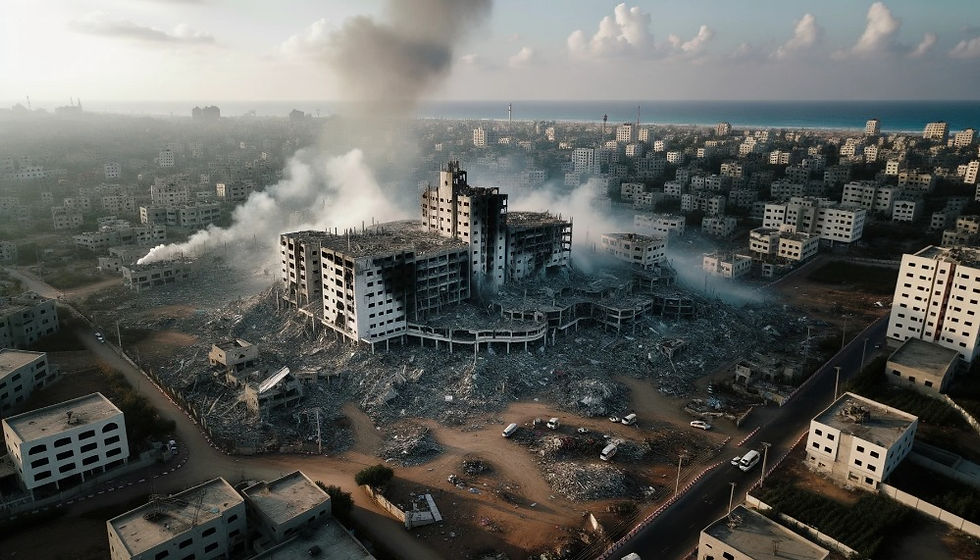Who Fired The Missile That Destroyed Gaza Hospital?
- A.Weishaupt

- Oct 18, 2023
- 2 min read

The explosion that devastated a hospital in Gaza has raised several questions, underscored by a global quest for answers. What truly happened? Who was responsible? Amid the theories and narratives, there is a genuine necessity to seperate fact from fiction.
It began with immediate claims that the Israeli Defense Force (IDF) was behind the attack. However, in a detailed press briefing, the IDF made their counter-argument. Utilizing a blend of videography, photography, both in the visual and infrared spectrum, and radar analysis, they put forth a methodical breakdown of the evidence. The absence of direct damage to the hospital and the peculiar concentration of the devastation around the car park, which was filled with refugees seeking sanctuary, painted a starkly different picture from the initial claims.
When missiles cross the skies, the aftermath leaves certain signatures, unique footprints that distinguish one explosive from another. The IDF's analysis indicates that the explosion resulted more from rocket fuel than from an explosive warhead. Such observations further propel the theory that this wasn’t a targeted air strike but a misfired missile.
However, with information so valuable in the age of digital warfare, it's not just about physical destruction. It's about shaping narratives. The world witnessed just how swiftly certain groups assigned blame. Within moments of the explosion, statements flooded social media platforms labeling it as an Israeli Air Attack. Such haste in attribution raises doubts, especially when considered against the traditional duration required for military intelligence to confirm the details of an incident.
The implications of such disinformation campaigns are profound. In an era where a tweet can influence international perceptions, the weight of responsibility on media outlets is immense. Misinformation, an accidental misdirection, is one thing. But disinformation, the deliberate spreading of falsehoods, has strategic aims. In this instance, the immediate blame placed on Israel served to divert global attention. Notably, it happened just as US President Joe Biden was set to meet regional leaders, thereby altering the course of diplomatic engagements.
It's essential to differentiate between the actions of a few and the sentiment of many. The explosion's aftermath has been weaponized, not by the general Palestinian populace, but by specific groups with vested interests. This distinction is vital in understanding the conflict and preventing undue suffering for innocent civilians caught in the crossfire.
The situation underscores the necessity for international collaboration in intelligence sharing. A unified front from the global community, such as the 'Five Eyes' intelligence alliance, could bring clarity to such situations and reduce the space for disinformation campaigns.
The tragic events in Gaza have not only altered the physical landscape but have also dramatically shifted the geopolitical dynamics of the region. With such high stakes, the quest for the truth is not just about assigning blame but ensuring that innocent lives are not exploited for broader strategic gains.




Comments